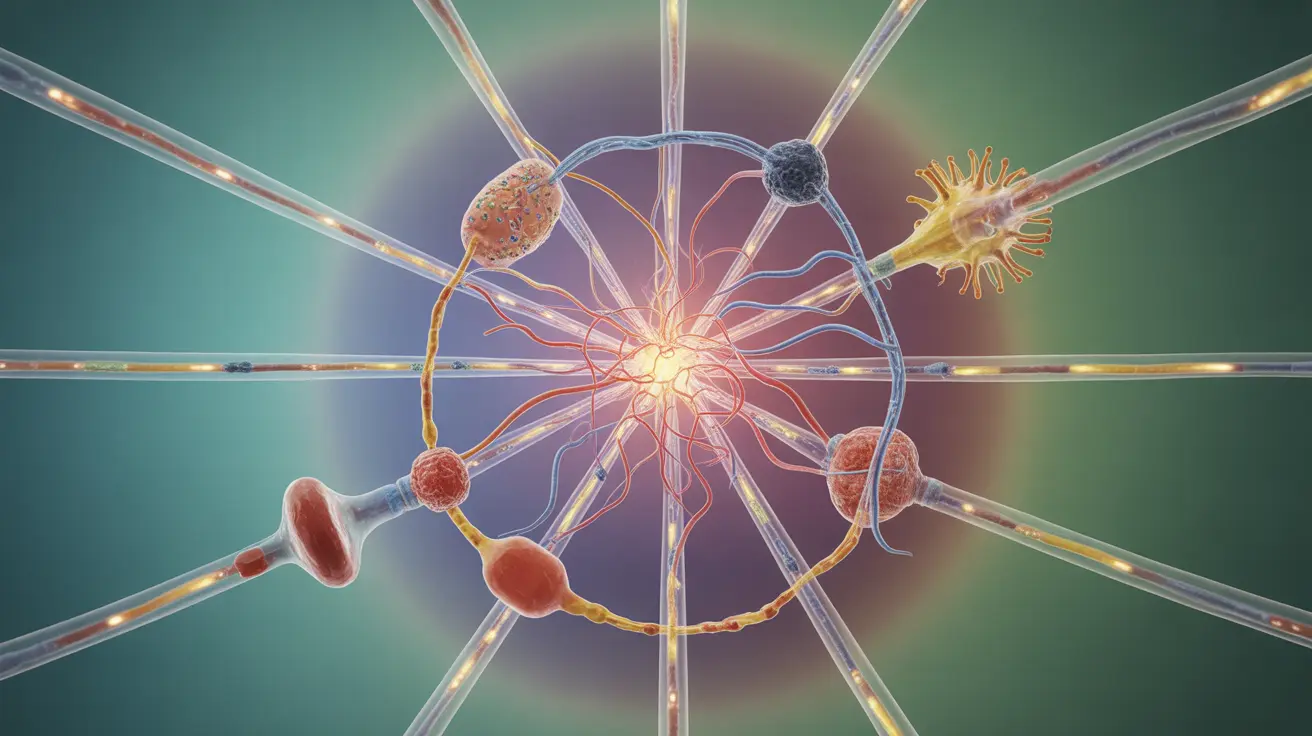The relationship between irritable bowel syndrome (IBS) and depression represents a complex interaction between gut health and mental well-being. Many individuals experience both conditions simultaneously, suggesting a significant connection that affects millions of people worldwide.
This comprehensive guide explores the intricate relationship between IBS and depression, examining how these conditions influence each other and what treatment options are available for those affected by both.
The Gut-Brain Connection
The digestive system and brain maintain constant communication through what scientists call the gut-brain axis. This biological highway helps explain why emotional states can trigger digestive symptoms and vice versa.
Research shows that the gut contains millions of neurons and produces many of the same neurotransmitters found in the brain, including serotonin. This connection helps explain why emotional distress can manifest as digestive symptoms and why gut problems might influence mood.
How IBS and Depression Interact
Physical Manifestations
IBS symptoms often worsen during periods of depression, leading to:
- Increased abdominal pain
- More frequent bowel movement changes
- Greater sensitivity to food triggers
- Enhanced bloating and discomfort
Psychological Impact
Living with IBS can significantly affect mental health by:
- Limiting social activities
- Causing anxiety about symptoms
- Reducing quality of life
- Creating feelings of isolation
Treatment Approaches for Both Conditions
Integrated Medical Care
Managing both IBS and depression typically requires a comprehensive treatment approach that addresses both physical and emotional aspects of these conditions. Healthcare providers often recommend combining multiple strategies for optimal results.
Medication Options
Several types of medications may help manage both conditions:
- Selective serotonin reuptake inhibitors (SSRIs)
- Tricyclic antidepressants
- Anti-anxiety medications
- IBS-specific medications
Lifestyle Modifications
Implementing healthy lifestyle changes can significantly improve both conditions:
- Regular exercise
- Stress management techniques
- Dietary modifications
- Adequate sleep habits
- Mindfulness practices
The Role of Mental Health Support
Professional mental health support plays a crucial role in managing both conditions. Cognitive behavioral therapy (CBT) has shown particular promise in helping individuals cope with both IBS symptoms and depression.
Support groups can also provide valuable resources and connection with others experiencing similar challenges, reducing feelings of isolation and providing practical coping strategies.
Frequently Asked Questions
What is the connection between irritable bowel syndrome (IBS) and depression?
IBS and depression are connected through the gut-brain axis, with each condition potentially triggering or worsening the other. The gut produces many of the same neurotransmitters as the brain, creating a biological basis for this relationship.
How can depression influence the symptoms of IBS and vice versa?
Depression can worsen IBS symptoms by increasing gut sensitivity and altering digestive patterns. Conversely, dealing with chronic IBS symptoms can lead to or exacerbate depression due to the impact on quality of life and daily activities.
What treatment options are available for people with both IBS and depression?
Treatment options include medications (antidepressants, IBS-specific drugs), psychological therapies (CBT, mindfulness), lifestyle changes (diet, exercise), and stress management techniques. An integrated approach typically works best.
Can antidepressant medications help relieve IBS symptoms as well as depression?
Yes, certain antidepressants, particularly SSRIs and tricyclic antidepressants, can help manage both conditions by affecting neurotransmitters that influence both mood and gut function.
How does managing IBS affect the risk or severity of depression?
Effectively managing IBS symptoms can reduce the risk and severity of depression by improving quality of life, reducing stress, and increasing social engagement. Similarly, addressing depression often leads to improved IBS symptoms.




